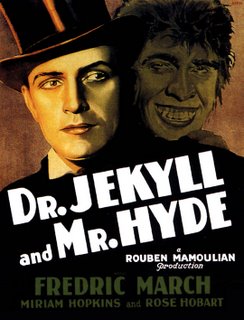 Sitting here in Bangkok at a Regional Conference on Open Standards organized by Thailand's national IT agency, NECTEC, I was struck by two statements made by a senior executive from a major, global IT company:
Sitting here in Bangkok at a Regional Conference on Open Standards organized by Thailand's national IT agency, NECTEC, I was struck by two statements made by a senior executive from a major, global IT company:"Open source is neither necessary nor required for open standards."
"Open source simply is a development methodology and a business model."
It makes me think that too many companies have a Dr. Jekyll and Mr. Hype approach to open source software, open standards and everything else open. Everyone loves to be "open," but hates the idea of someone else using "open" to compete with them. So . . . my "open" is good but yours is not.
What's driving this? Control. Companies cannot control open source. Often they can have significant control over open standards through their participation in standard organizations and the hundreds of meetings at which a standard is developed (many only open to those who pay to play). You want a seat at some standards bodies, great . . . for $1 million you get a seat, plus the cost of attending all those meetings. When one of those companies says (as it did just now), "Open standards is in our DNA," does that give you comfort?
So, back to those quotes - who do you think said it?
Microsoft?
No. Guess again . . .







2 comments:
Thanks for this note, Jeff, from so far away.
That comment comes from an exec who's showing off his newly established ability to discern between open source and open standards. It is a belief you might expect from someone who has no experience of how open source accelerates the standards-making process.
Take OpenOffice/OpenDocument, for example. It is impossible to imagine the process of creating and deciding among technical choices for what is in and what is out and what techniques to employ in the OpenDocument Format if there were not an open source reference implementation of the OpenDocument-capable application, OpenOffice.
It is not simply about having a free version of the software that users can access easily but about the readiness of a set of code that a standards Technical Committee can turn to, fire up and articulate an idea, then show members of the Committee the thing in action.
Without a refernce implementation in the skunk works, these conversations about technical are like singing about butterflies or dancing about architecture.
Lacking an open source, or any, reference implementation for their MSECMAXML file format, Microsoft's meetings with its misguided cabal under ECMA may push Office 2007, and Vista with it, into the next decade...or produce a weak implementation of the format and the application to which it is so closely tied.
Open standards and open source are two sides of the same coin. Although they are two very different things, they are now inseparable. When the standards industry matures, all will agree that this is true.
Thanks for this note, Jeff, from so far away.
That comment comes from an exec who's showing off his newly established ability to discern between open source and open standards. It is a belief you might expect from someone who has no experience of how open source accelerates the standards-making process.
Take OpenOffice/OpenDocument, for example. It is impossible to imagine the process of creating and deciding among technical choices for what is in and what is out and what techniques to employ in the OpenDocument Format if there were not an open source reference implementation of the OpenDocument-capable application, OpenOffice.
It is not simply about having a free version of the software that users can access easily but about the readiness of a set of code that a standards Technical Committee can turn to, fire up and use at hand to articulate an idea, then show members of the Committee the new element being discussed in action.
Without a reference implementation in the skunk works, these conversations are like singing about butterflies or dancing about architecture.
Lacking an open source, or any, reference implementation for their MSECMAXML file format, Microsoft's meetings with its misguided and deluded cabal under ECMA may push Office 2007, and Vista with it, into the next decade...or produce a weak implementation of the format and a weaker implementation of the application to which it is Tied.
Open standards and open source are two sides of the same coin. Although they are two very different things, they are now inseparable. When the standards industry matures, all will agree that this is true.
Post a Comment